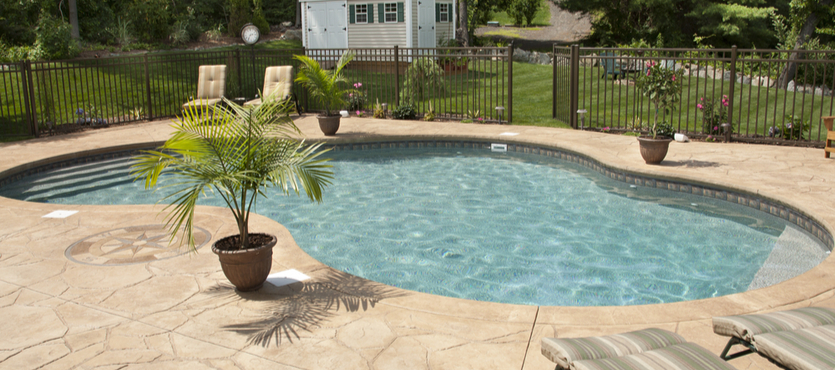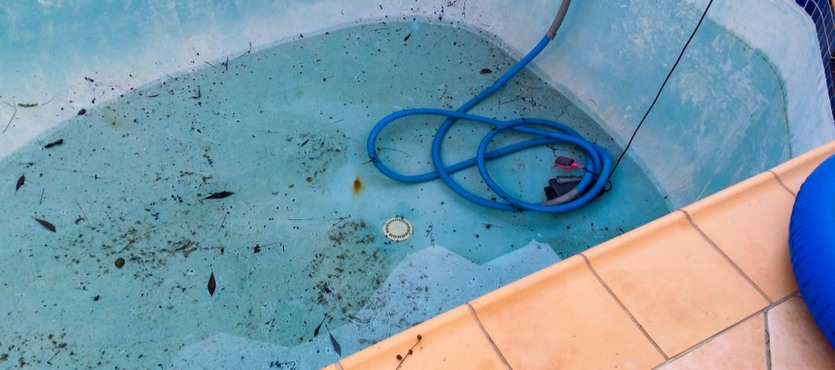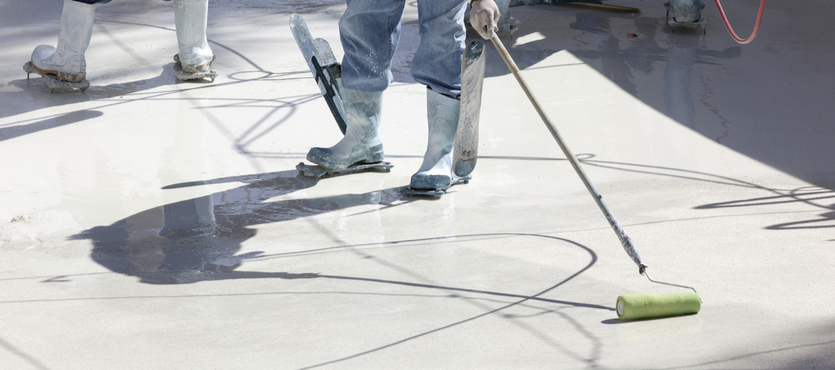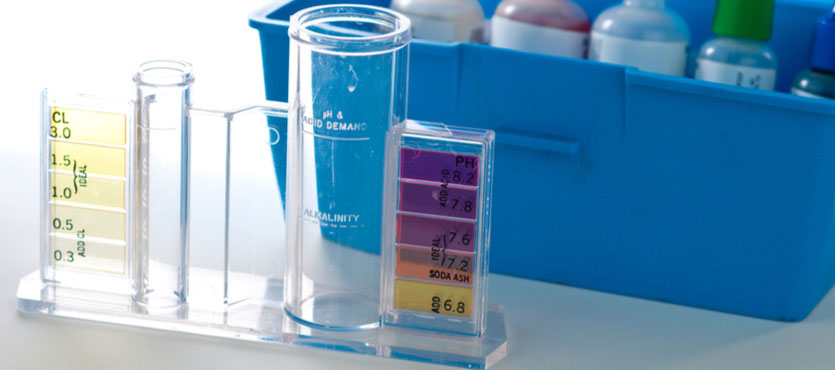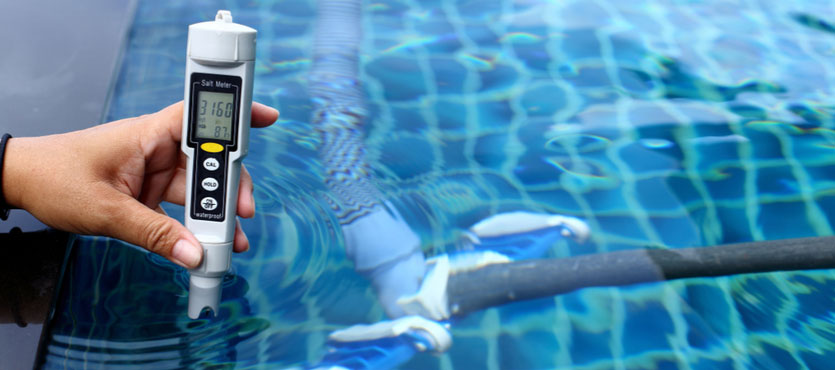Debating a salt water vs. chlorine pool? We are here to break down the pros and cons of both options to help you make the best decision for your swimming pool. Both offer a way to kill bacteria, reduce dirt, and prevent algae from multiplying in the water, as well as in your cleaning equipment. What is a Chlorine Pool? …
How to Test Your Pool for a Leak
It’s time to test your pool for a leak if your pool appears to be losing water. Keep in mind, even pools in top-notch condition will lose a little water each day due to evaporation – less than ½ of an inch per day is considered normal. If your pool is losing over ½ to 1 inch of water a …
Resurfacing A Pool In Florida: What Is Diamond Brite Resurfacing?
Resurfacing your pool in Florida is considered mandatory maintenance at some point in time if you want to keep your pool looking and functioning great for years to come. Resurfacing removes the dull, cloudy appearance that pools develop over time. It can also repair broken or chipped areas on your current pool finish. What Does It Cost to Resurface A …
Testing Your Pool Water Chemistry: 4 Things You Should Test For
By regularly testing your pool water chemistry you can maintain a safer pool for swimmers, while promoting the longevity of pool equipment and materials. There are four main things to test for: pH levels Chlorine/free chlorine levels Total alkalinity Calcium or water hardness It is important to check your pool water chemistry for several fundamental reasons: To help prevent the …
How Does a Salt Cell Work? And Other FAQ Regarding Salt Systems
A salt cell, or salt generator, is used for a salt water pool and is responsible for generating chlorine. Salt water pools still rely on chlorine to sanitize water, but chlorine is added differently than it is with a traditional chlorinated pool. Salt cells work by transforming sodium chloride (aka table salt) into chlorine. Salt cells work through a process …

